The relationship with reading is something very personal. There are readers of all kinds, those who devour books devoting themselves to them day and night and those who prefer to enjoy them little by little, those who prefer sagas of many pages and many volumes and who seldom go beyond one short novel.
At Condé Nast Traveler we love to read, and with the book Fair just around the corner, we have tackled the difficult task of choosing a favorite book among those of us who have read to each other this year, and we have also taken the opportunity to reflect on what reading means to us.
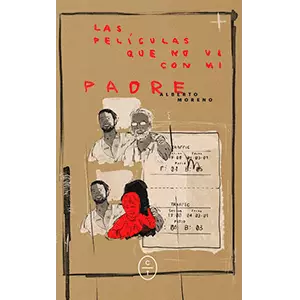
The movies I didn't see with my father, by Alberto Moreno.
THE MOVIES I DID NOT SEE WITH MY FATHER, ALBERTO MORENO (CHALK CIRCLE)
Synopsis : The cinema is the excuse, the Hitchcockian Macguffin, which gives meaning to everything that the title suggests. Our colleague Alberto Moreno, Head of Content at Vanity Fair Spain, puts his voracious cinephilia at the service of an intimate catharsis that, whether he intends it or not, ends up being not only an autobiographical exercise, which is fine, but also the stupendous portrait of a generation , we no longer know if Y, millennial or what, always on the back of disenchantment, always hesitating between achieving ephemeral glory or surrendering to an infinitely less ambitious carpe diem.
“I have a notebook with six thousand films written down, all the ones I have seen until I was forty years old. I have been a journalist specializing in cinema, but this book is not –it does not want to be– a film book, but rather the portrait of an absence, that of a father who left too soon and did not know how or could not transmit to me many of the passions that he did. I would like to transfer my son to him.” Alberto's words, that why to the question of why this book, describe a life, his, and a tragedy, the death of his father. But perhaps he does not know (or very well) that this journey from life to the cinema, to the cinema as the perfect ruse, is traveled by part of a generation that also stayed up late with José Luis Garci, who also wrote down the films he had seen in notebooks, but the slopes, which devoured Bergman all the time – "that's how you take it off before", the seasoned recommended – and which lost its virginity between the tumbles of Gregg Araki, the nonsense of Vincent Gallo and the four seasons of Rohmer. A generation, the last one already, that knew how to do the triple somersault from Robert Benton's French toasts to Paul Thomas Anderson's custard and today, with some gray hair already in the comb, refuses to call anything after Straw dogs. I have not said generational portrait because that was already said when Mañas. But in The movies I didn't see with my father there is a lot of portraiture and a lot of generation. Hopefully it falls into the hands of many centennials. —David Moralejo, Head of Content, Condé Nast Traveler Spain.
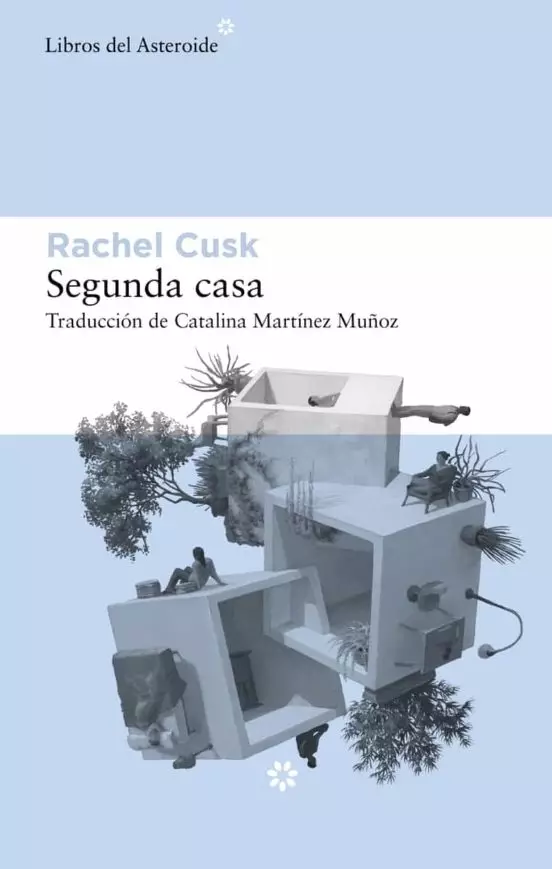
Second House, by Rachel Cusk.
SECOND HOME, RACHEL CUSK (ASTEROID BOOKS)
Synopsis : A woman invites a prestigious painter to spend time with her and her family in a newly built guest house next to the remote marsh where they live, hoping that the artist's gaze will illuminate her own her existence. The visit will not go as expected, revealing to the protagonist (and the reader) that art can be saving or destructive.
Last year I read 'Dispossession', an autobiographical work by the same author in which she narrates the pain and perplexity at her marital separation. Its language and originality captivated me, although I did not connect with the spirit of the book, especially in its disconcerting second half. However, seeing that some people around me recommended 'Segunda casa' on social networks, my curiosity was piqued and I got hold of it. I couldn't put it down for two or three days, when I finished it with a powerful feeling of having read something very important and valuable. Cusk's story is not designed to make the reader feel better or reconcile him to unflattering aspects of her existence, but instead confronts him with realities not so often reflected in popular culture. Painful, tremendous and fascinating. —Clara Laguna, editor of Condé Nast Traveler Spain.
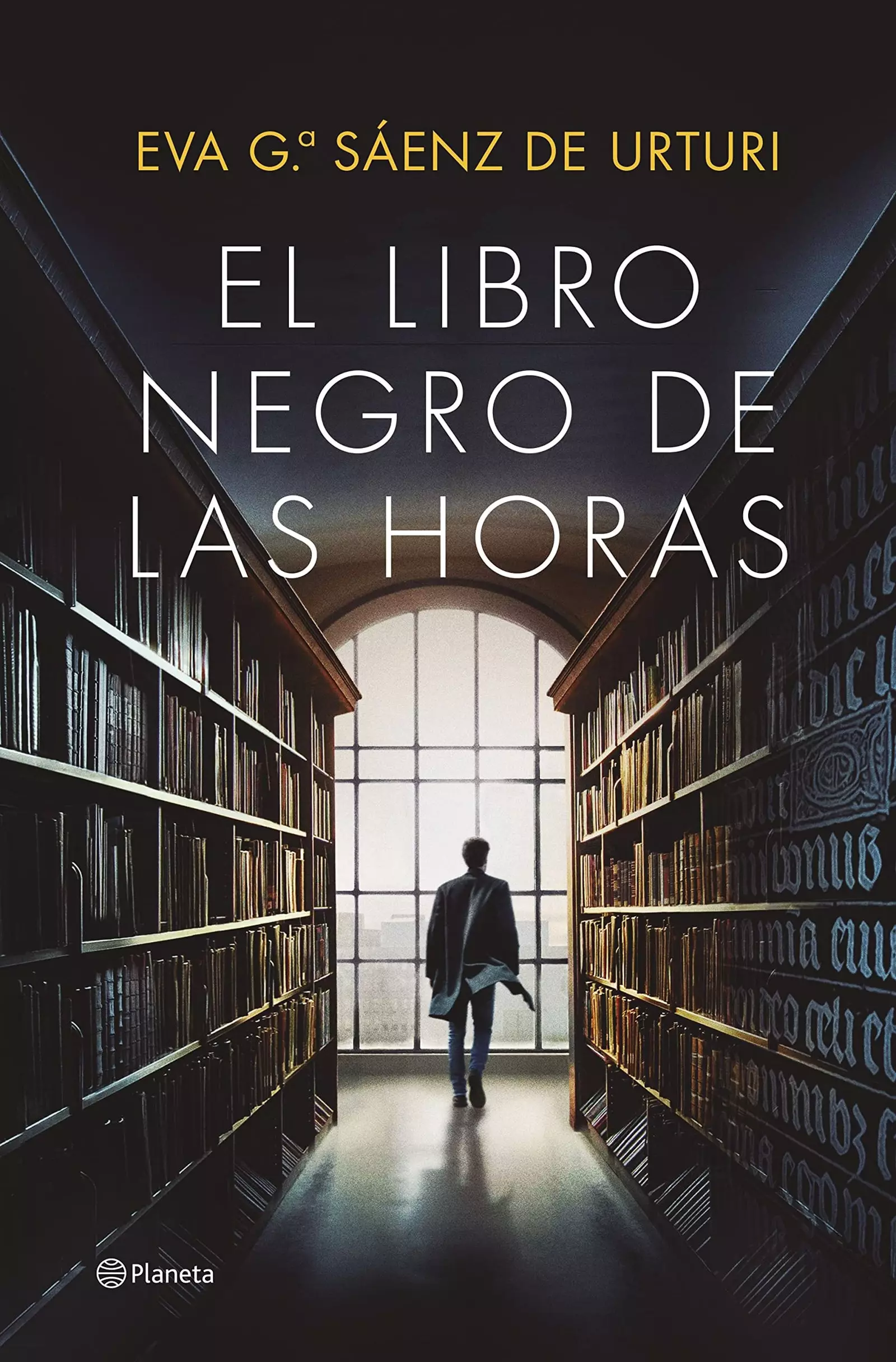
'The black book of hours', Eva García Sáenz de Urturi.
THE BLACK BOOK OF HOURS, EVA Gª SÁENZ DE URTURI (PLANET)
Synopsis: Someone who's been dead forty years can't be kidnapped and certainly can't bleed. Vitoria, 2022. Former inspector Unai López de Ayala —alias Kraken— receives an anonymous call that will change what he thinks he knows about his family past: he has one week to find the legendary Black Book of Hours, an exclusive bibliographical jewel, if not , his mother, who has been resting in the cemetery for decades, will die.
The White City Trilogy kept me and two million other readers awake at night, but it also gave me one of the best stories I've ever read. That's why, when Eva García Sáenz de Urturi published Aquitania, I didn't hesitate for a moment: I entrenched myself between her pages and didn't let go until I reached the end. The return of Sáenz de Urturi in 2022, the return of Kraken, reintroduces us to the inspector's story –sorry Unai, I know you don't like being called that– and in a case that this time affects him personally. Madrid and Vitoria are the settings for this work developed in two timelines and two narrative voices that introduces us to a new and complex universe: bibliophile. Incunabula, facsimiles, books of hours, codices, manuscripts... all these precious treasures parade before the eyes of the reader on a suggestive literary tour with stops at the Cuesta de Moyano, the Barrio de las Letras, the Miguel Miranda bookstore or the Instituto Cervantes. Unai López de Ayala must not only trace the most important criminal profile of his life, but must also consider that his mother –until now dead– could be the best forger of old books in history. —María Casbas, editor of Condé Nast Traveler Spain.
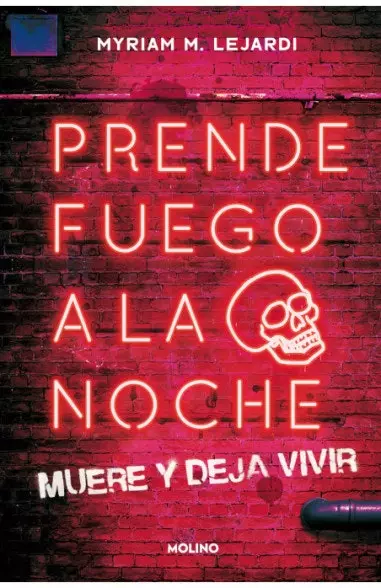
Set Fire to the Night, Myriam M. Lejardi.
SET THE NIGHT ON FIRE, MYRIAM M. LEJARDI (MILL)
Synopsis : Vail has lived, before his 20th birthday, more lives than his fair share. Ironically, the last one came after he died, when he woke up with a non-beating heart, a terrible thirst for blood and having to go through the worst experience: going back to compulsory education. Now he has to abandon her again, escape from the authorities of the underworld of creatures that live next to us without us knowing, and all because his best friend is a liar incapable of not creating chaos in his path. If it would have already been difficult to survive the elite of the supernatural world, what will happen now that he has met Gabriela, strong, brave, infuriatingly human and the only person who has challenged the vampire like never before?
I've always loved supernatural stories: the possibility of magical and strange worlds at hand, ordinary people (like me) encountering them almost by chance. Growing up, I did not stop looking for that feeling of wonder, but also that human component of imperfect characters, of gray morality, of doubts and mistakes with which I could identify. The monster made human, the human made monster. After a long time of reader blockade due to the pandemic, Set Fire to the Night managed to absorb me as a novel hadn't for a long time: with its imperfect, broken and lying characters whose motivations are an echo of that epic phrase from Game of Thrones: " the things I do for love. A story of vampires, werewolves and other creatures full of intrigue, feelings, attraction and that put the morality of the protagonists to the test again and again, unpredictable plot twists and a trip to the past and the best kept secrets of the characters . If we add to this the LGBT component and the vision that there are as many types of love as there are people in our lives, Lejardi offers us a captivating story of adventure, conspiracy, magic and love in all its forms that makes us smile, cry and get excited. And, once again, betting on the losing team to win, despite everything they have against them. —Virginia Buedo, Adaptation Editor, Condé Nast Traveler Spain.
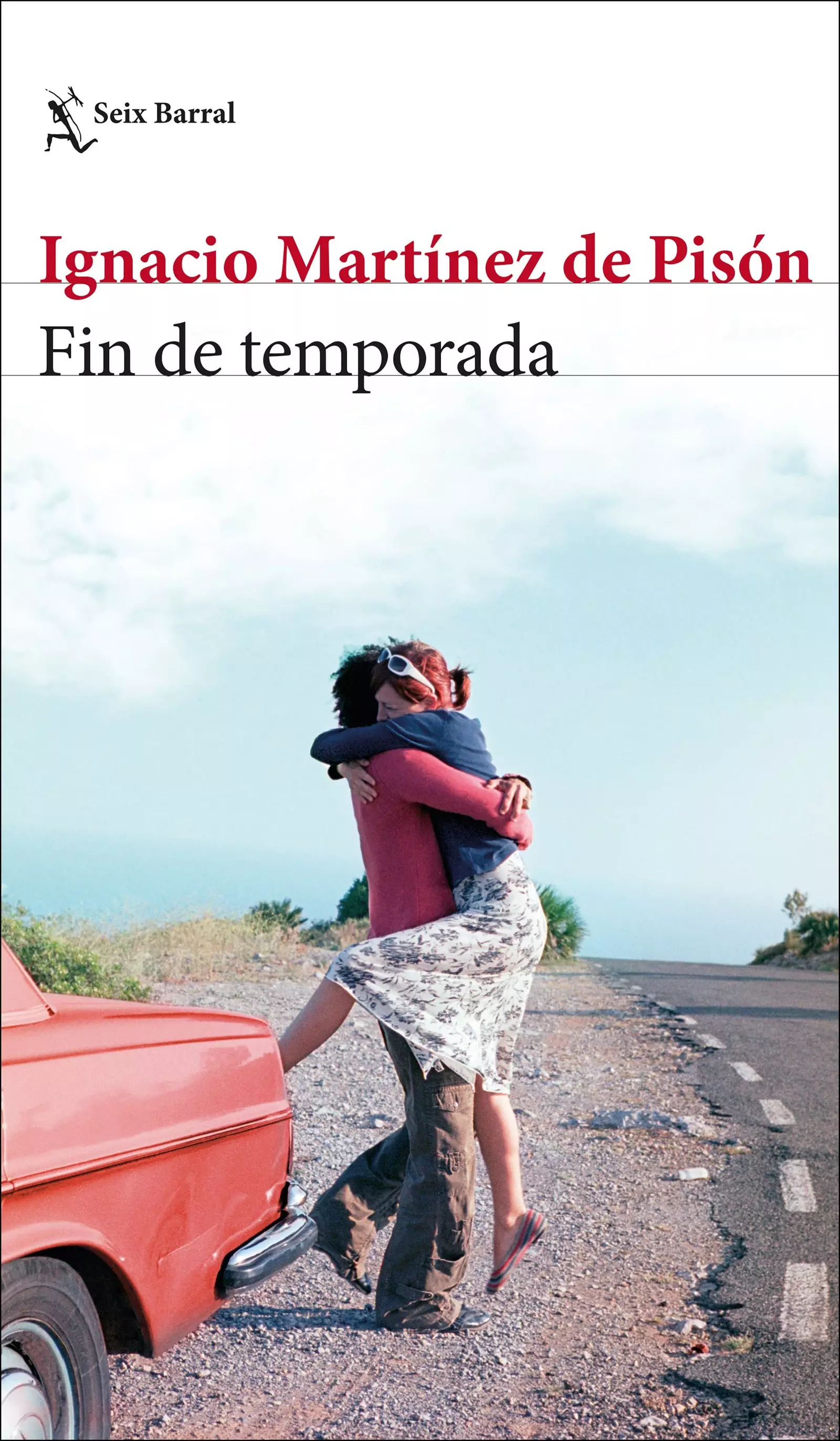
End of season, by Ignacio Martínez de Pisón.
END OF SEASON, IGNACIO MARTÍNEZ DE PISON (SEIX BARRAL)
Life is decisions, doubts and secrets. Also links and experiences that make one feel the fullest happiness or, when everything goes wrong, the worst of demons. The tragedy is chewed from the moment the first page of End of season opens, a novel where the psyche rules but the heart dominates. Juan and Rosa, a young couple from Extremadura, travel by car to Portugal so that she can have a clandestine abortion. We are in 1977. An accident will take his life and her past. Twenty years later, Rosa and her son, Iván, run a small campsite in Tarragona. Without having more than one another, an invented life has passed without any surprises. But fate is capricious and lies, although pious, always have short legs. Emotional to the core and with a psychological clairvoyance that frightens, its protagonists are especially worldly. In fact, it could very well be any of us. Factor that, without a doubt, makes the story of Ignacio Martínez de Pisón (Zaragoza, 1960) a delightful adventure in which to be reflected in some way. Because who forgives a lie? Who does not feel betrayed to discover that his life has been a farce? Who is not capable of anything to protect what he loves most? Feelings become a common thread in this story where he empathizes with all the parties and where the drift of his decisions lead to immediate reflections and introspections. Because we are all bonds, emotions and secrets. —Cynthia Martín, editor of Condé Nast Traveler Spain.
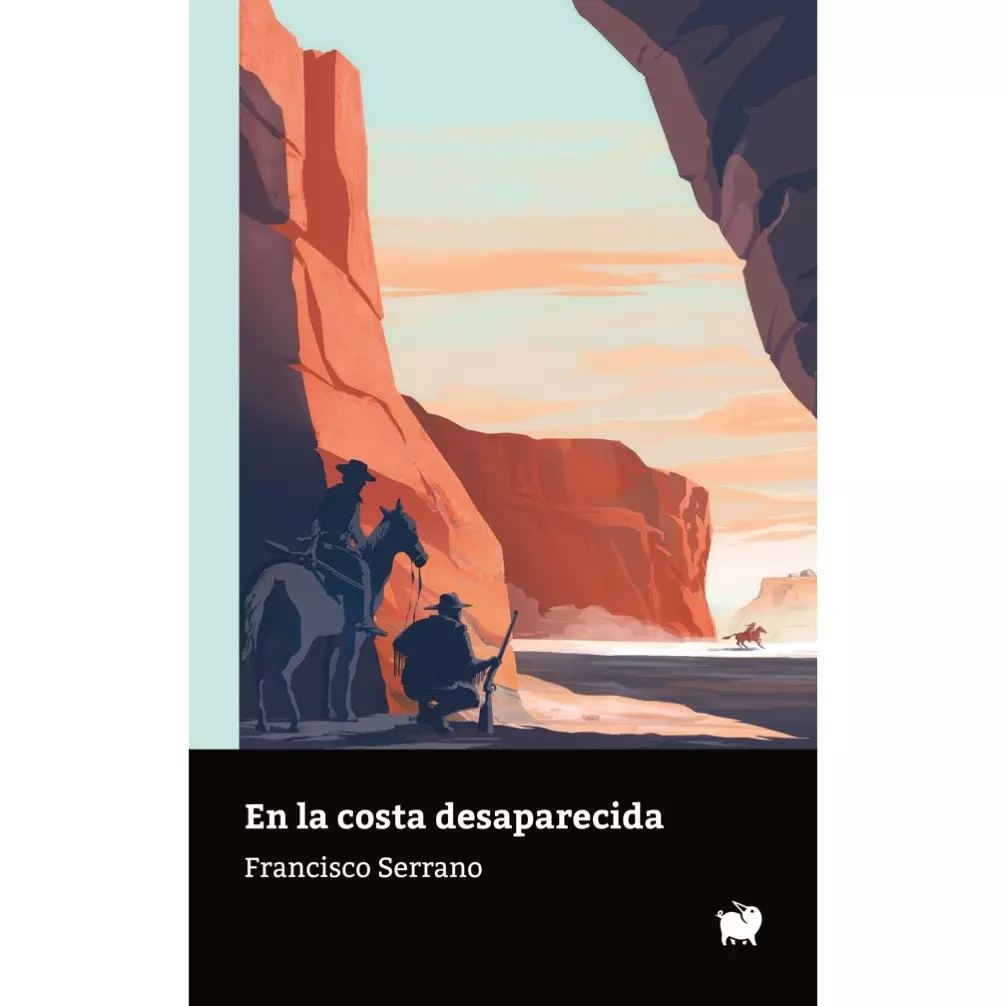
On the missing coast, Francisco Serrano.
ON THE DISAPPEARED COAST, FRANCISCO SERRANO (EPISKAIA)
Synopsis : Arizona Territory, late 19th century. Home to rustlers, explorers, bounty hunters, muleteers and prospectors. Clara Hooper, recent widow of the sheriff, expert horse trainer, is about to discover that it is not easy to leave the past behind, and that her new clan may not offer enough protection against the wrath of the one she left behind.
I am one of those people who read non-stop as a child and had a personality built around being an avid reader, so adult life, with its more limited time to sit down to read without stress and its eternal distractions, has taken away a important hobby. I've been able to get by with short novels, but finally finishing a 400+ page book last month has been a real achievement. But it is that the work deserves it: a western surprisingly adapted to its time, with dizzying action and a perfect rhythm, narrated in a choral way by characters as different from each other as they are fascinating. It presents a cruel and ruthless world, full of betrayal and death, but with just the right dose of reality to catch without overloading. It combines amazing depth with a way of narrating so pleasant and entertaining that it seems to end in a sigh and leaves you wanting more from the moment you turn the last page. —Eva Duncan, Adaptation Editor, Condé Nast Traveler Spain.
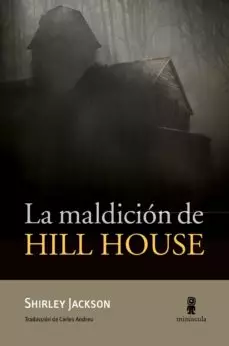
The Haunting of Hill House, Shirley Jackson.
THE CURSE OF HILL HOUSE, SHIRLEY JACKSON (LOWERCASE)
Synopsis : an investigator of the supernatural; a young woman who has lived dedicated to the care of her mother; a bohemian artist; and the heir to the property, meet at the remote mansion of Hill House with the intention of seeking scientific evidence of the existence of the paranormal. Each of the characters will begin to experience strange supernatural events in which imagination and reality are mixed and that will end up having terrible consequences for all of them.
The times I read the most were when I was with my grandparents in a remote village in Wales and had nothing else to do, so books have become a vital part of traveling for me. They are also a way to escape, and I often read fiction in times of crisis or anxiety. I love getting lost in the microcosm of a story, in its characters, and I especially fondly remember the feeling of devouring Donna Tartt's Secret History, one cold March in New York when I was unemployed and penniless. It comforted me a lot, I totally lost myself between the pages of it for a whole week, and now I usually look for books that replicate that feeling. It's not always easy, but lately I've found it in an unexpected place: in horror novels. I'm reading Shirley Jackson, and I think what appeals to me is that the terror of the book is very different from the day-to-day horror I see from my window. The Haunting of Hill House, with its complex and fascinating characters, has helped me appreciate an entire genre of literature that I barely knew. —Lale Arikoglu, Articles Director, Condé Nast Traveler.
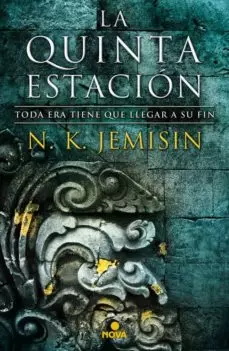
The Fifth Station, N. K. Jemisin.
THE FIFTH STATION, N. K. JEMISIN (NOVA)
Synopsis : in the Stillness, a broken continent where catastrophe is part of everyday life, the four seasons follow one another until the fifth arrives to end everything. The skies are dark with ash, the waters are poisoned, the air becomes unbreathable, people who have no community die. And the crack that has just split the world in two seems to announce the end of the world. But a mother has just lost her family, and she's willing to cross the world to save what's left of her.
They didn't let me watch much TV when I was little, so I read nonstop. I remember reading a series of ten books in one go and then starting over. It was fascinating how I found novelty in the same books over and over again, how I was carried away by the adventures for hours and hours. I've even had to learn to slow down my reading speed later on in order to really enjoy the stories. Now I still love long series, they are a way to disconnect, especially when they deal with things that neither exist nor will exist. I usually look for fantasy and science fiction and I get fully into other worlds with books like the Earthsea cycle by Ursula K. Le Guin. The fifth season and, in general, the entire trilogy of The Fragmented Earth I love because I can follow the lives of people in a world that could be ours but at the same time is not, in a way that I empathize but I can withdraw at any time. It's a long book, but you have to pay a lot of attention, and this thing of having to learn how a whole world works somehow relaxes me and helps me forget about my own. —Meredith Carey, Travel Bookings Editor, Condé Nast Traveler.
Some of the books mentioned are featured in The Best Books We've Read Recently episode of the Women Who Travel podcast. It is available on Apple Podcasts and Spotify.
